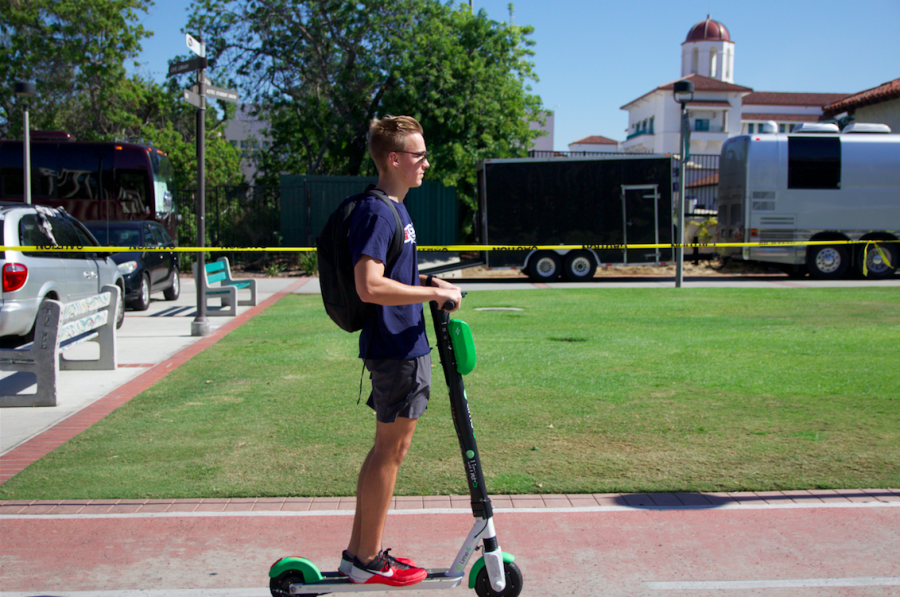San Diego Mayor Kevin Faulconer’s proposed e-scooter regulations in October that, if passed, could affect San Diego State riders.
Mayor Faulconer’s proposed regulations include limiting the speed of the dockless scooters to 8 mph in certain areas. The scooter companies, such as Bird and Lime, would also be required to educate riders on local and state traffic laws as well as providing the City with data reports, according to a press release from the City of San Diego.
The press release also said riders would also be required to compensate the city from liability claims related to scooter use and hold a liability insurance policy.
Parking and Transportation Services Director Debbie Richeson said university records identify only one reported incident in October between a scooter and a bicycle. However, the scooter was not motorized.
Associated Students Sustainability Commissioner Cassie Weinberg said, although the regulations Faulconer proposed would help with the scooter issue on campus, she thinks they need to be more detailed if they are going to be implemented on campus.
She said the main problem regarding motorized scooter use on campus is safety.
“People go really fast,” she said. “I’ve almost gotten hit a few times across the bridge and places around there so I think safety is a big problem.”
Weinberg said another issue with dockless transportation on campus has to do with where users leave the scooters after they’re done with them.
“Since there’s no dock to put them, people just kind of place them wherever they want.”
The university just ended their official partnership with the bike-sharing company Ofo after they failed to deliver on their promises, leaving damaged bikes scattered around campus. Weinberg said the university would consider working with a scooter company in the future, although conversations regarding future partnerships are only preliminary at this time.
Since Ofo’s time at SDSU, the university has installed more bicycle racks throughout campus. Weinberg said these racks could potentially be used to park motorized scooters in the future if the university decides to partner with another company.
“I think it’s kind of all up in the air,” she said. “With OFO leaving campus, I think there’s going to be more of a conversation of what do we do about these scooters since that’s definitely a better mode of transportation for a lot of students because that’s what they’re using these days.”
Richeson sent out an email Oct. 17 reminding students that there is an acceptable use policy for motorized scooters, bicycles and skateboards.
“We’ve connected to the companies, all of them, and because there is no resolution yet of what the final policy is going to be, it’s hard to partner with them,” Richeson said. “But we are in discussions to figure out how we can best work in the meantime to ensure that people are safe on campus.”
Biology senior Natalie Duarte said she thinks e-scooters are too dangerous for pedestrians and the people riding them.
“I’ve almost got ran over a few times,” she said. “I just feel like it gets really crowded and people are walking around trying to get to class so it’s really hard when they’re just riding everywhere.”
She said she thinks Faulconer’s proposed regulations may help regulate the issue on campus.
“I think regulations should be put into place so that everyone is safe and people have to abide by rules,” Duarte said.










